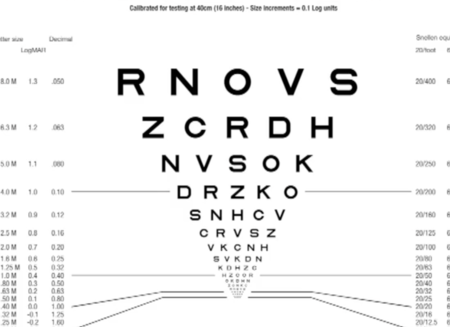Understanding 20/50 Vision and Legal Blindness

When it comes to vision, there are many terms and numbers that can be confusing. One of these is 20/50 vision and legal blindness. In this blog post, we will explain what 20/50 vision means and whether it is considered legally blind.
What is 20/50 Vision?
20/50 vision is a term used to describe a person's visual acuity, or how well they can see. It means that someone with 20/50 vision can see an object from 20 feet away that a person with normal vision can see from 50 feet away. In other words, someone with 20/50 vision has to be closer to an object to see it clearly than someone with normal vision.
What is Legal Blindness?
Legal blindness is a term used by government agencies and insurance companies to determine eligibility for certain benefits and services. It is defined as having a visual acuity of 20/200 or worse in the better eye with the best possible correction, or a visual field of 20 degrees or less.
Is 20/50 Vision Considered Legal Blindness?
No, 20/50 vision is not considered legal blindness. As mentioned earlier, legal blindness is defined as having a visual acuity of 20/200 or worse in the better eye with the best possible correction. Someone with 20/50 vision does not meet this criteria.
How Common is Legal Blindness?
According to the World Health Organization, there are approximately 36 million people worldwide who are blind, and another 217 million who have moderate to severe vision impairment. In the United States, it is estimated that around 1.3 million people are legally blind. The leading causes of blindness are age-related macular degeneration, cataracts, glaucoma, and diabetic retinopathy.
What Services and Benefits are Available to Those Who are Legally Blind?
There are several services and benefits available to those who are legally blind, including:
- Vocational rehabilitation
- Assistive technology and devices
- Transportation services
- Disability and health insurance
- Tax exemptions and deductions
- Social Security benefits
While 20/50 vision may not be considered legal blindness, it can still impact a person's daily life and activities. It is important to get regular eye exams and seek treatment if necessary to maintain good vision. If you or someone you know is legally blind, there are resources available to help with daily living and other needs.

You may also be interested...